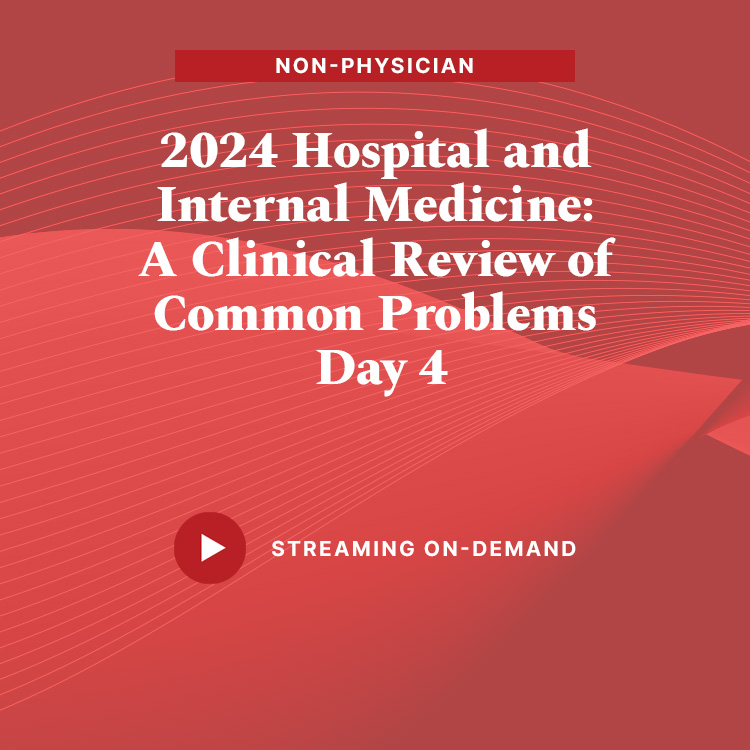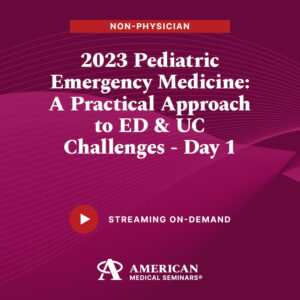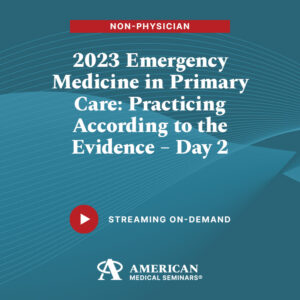Title: 2024 Hospital and Internal Medicine: A Clinical Review of Common Problems – Day 4 (Non-Physician)
Faculty: Kendal Williams, M.D., M.P.H..; Lawrence H. Brent, M.D.
Release Date: 7/1/2024 Expiration Date: 7/1/2027
Day 4
Crystal Arthropathies
Attendees of this presentation will be able to:
- Distinguish the clinical presentations and manifestations of gout and associated medical comorbidities
- Prescribe treatment for patients with gout according to the EULAR and ACR recommendations and guidelines
- Distinguish the clinical presentations, manifestations, and treatment of calcium pyrophosphate deposition disease (CPPD) and pseudogout
Vasculitis
Attendees of this presentation should be able to:
- Utilize the classification of vasculitis.
- Specify the diagnosis of specific vasculitides based on clinical, laboratory, and pathologic features.
- Prescribe treatment for patients with vasculitis based on their diagnosis.
Update on the Management of Stroke and Transient Ischemic Attack
Attendees of this presentation should be able to:
- Assess common presentations of cerebrovascular insufficiency.
- Prescribe the initial management of patients with a suspected acute CVA.
- Apply cutting edge strategies and therapies for the management of hemorrhagic and thrombotic strokes.
- Distinguish between stroke and TIA and appropriately assess the patient with TIA for early risk of stroke.
- Formulate an effective post-stroke secondary prevention plan as per the AHA/ASA guidelines.
The Evaluation and Management of Syncope and Vertigo
Attendees of this presentation should be able to:
- Appropriately evaluate patients with syncope or vertigo.
- Formulate a diagnostic evaluation strategy of syncope or vertigo that is based on best practices and the 2017 ACC/AHA/HRS guidelines.
- Debate the value of the various diagnostic approaches to the workup of syncope.
- Prescribe an effective therapeutic strategy for the management of both syncope and vertigo per the 2017 ACC/AHA/HRS guidelines.
Delirium, Dementia, & Psychosis – The Diagnosis & Mgmt of the Inpatient with Mental Status Change
Attendees of this presentation should be able to:
- Apply a diagnostic approach to the hospitalized patient with acute mental status change.
- Discuss the differential diagnosis of psychosis in the hospitalized patient.
- Based on a systematic review of the best evidence, formulate an evidence-based management strategy for delirium in the hospital setting.
- Develop an evidence-based screening and treatment protocol for the prevention and management of alcohol withdrawal syndromes.
- The receipt for any incentive-associated purchase will designate the value of the gift card separately from the cost of the learning activity.
- This incentive may have implications on your tax reporting obligations. Any reimbursed amount must be declared as personal income for tax purposes.



